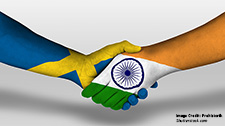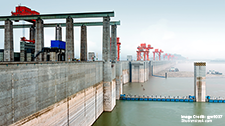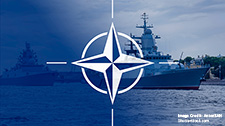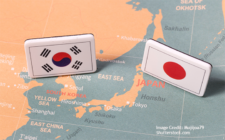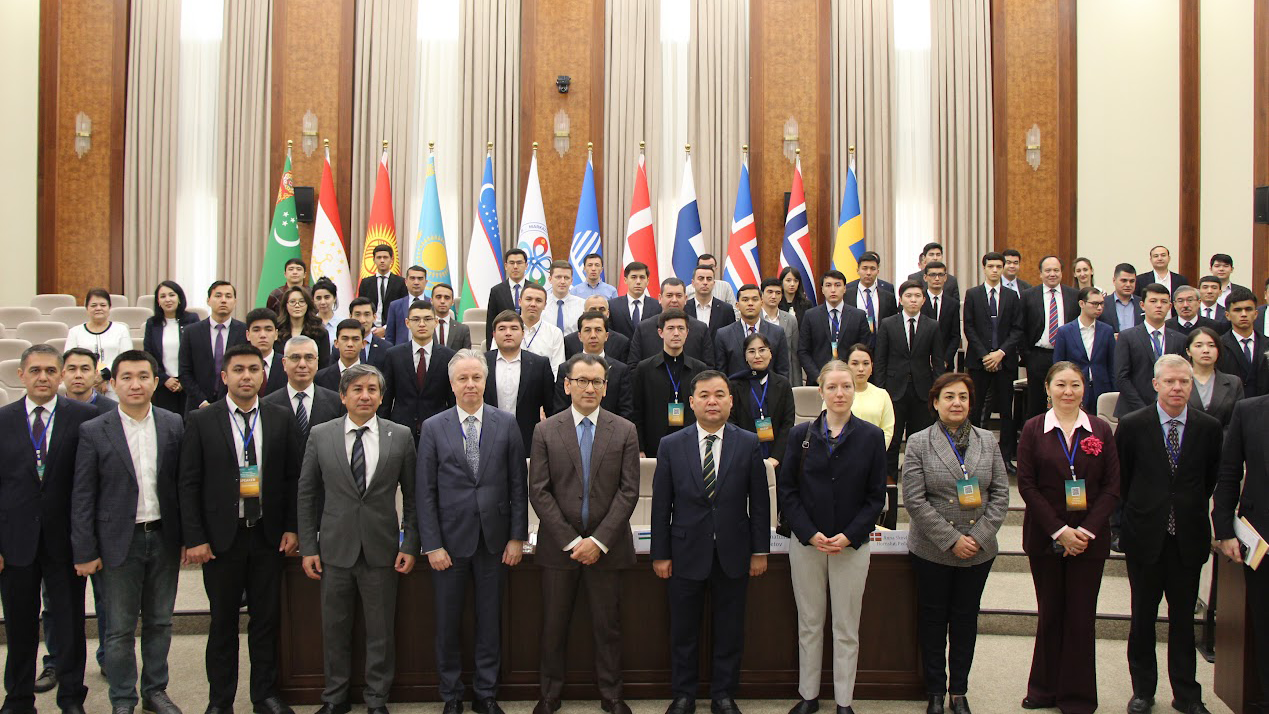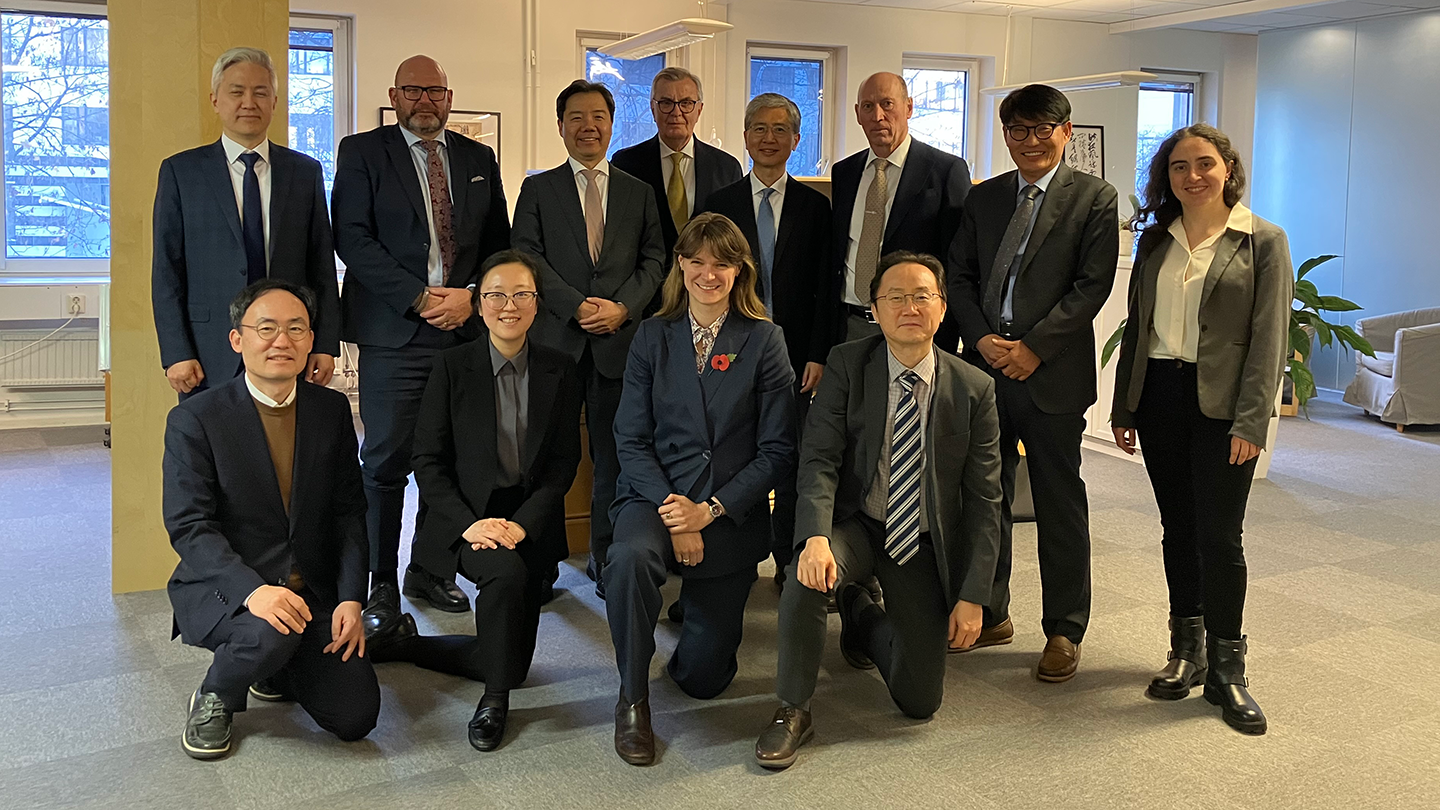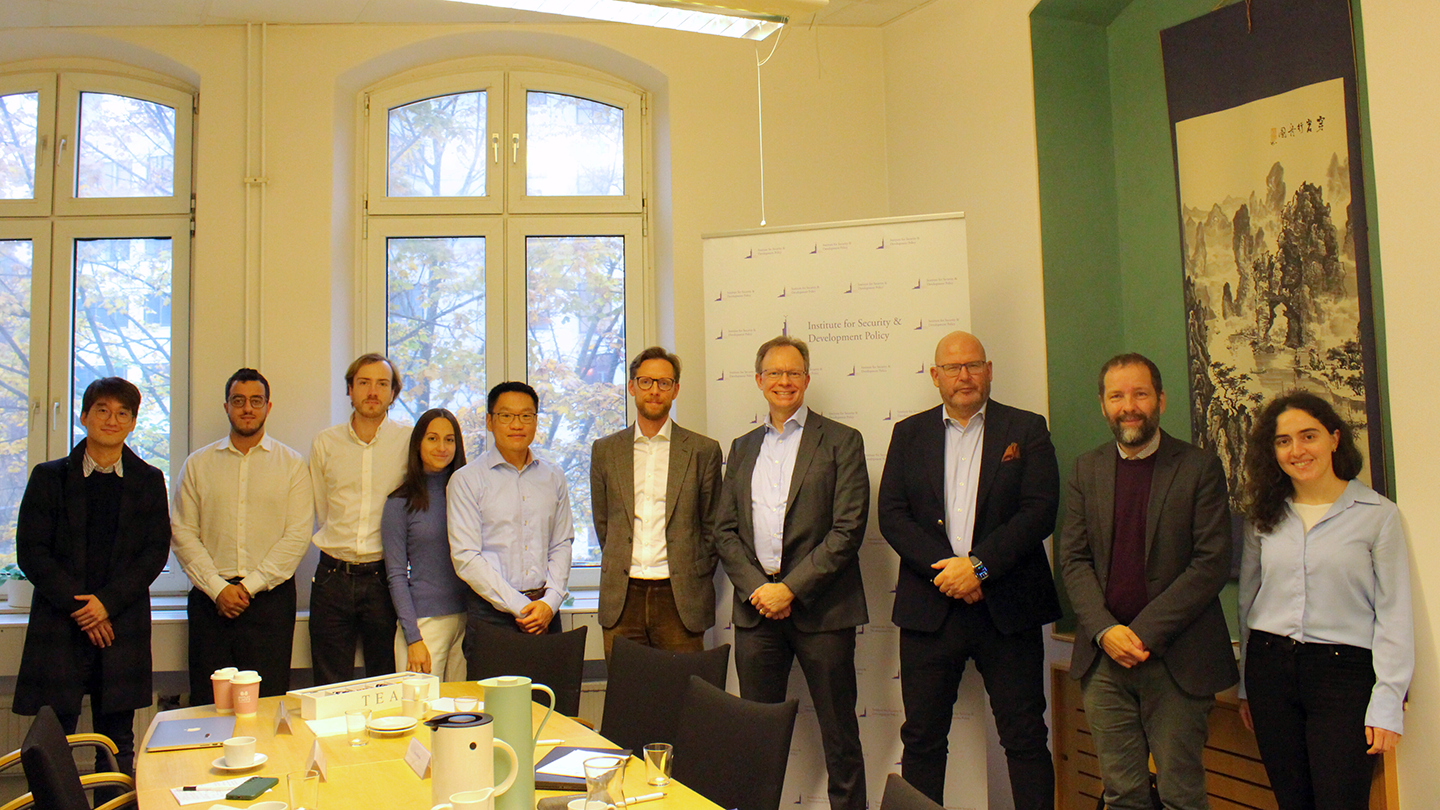-

Resilient Science: Transatlantic Challenges and Opportunities; Interview with Alicia Hennig and David Biggs
In this Experts’ Take, conducted by Melita Phachulia from ISDP’s Stockholm Center for Research and Innovation Security (SCRIS), David Biggs, a Senior Fellow, and Alicia Hennig, Associated Senior Research Fellow at the Institute for Security and Development Policy (ISDP), discuss how Europe and the United States can build resilience in science and research amid growing hybrid threats, disinformation, and intensifying global competition in technology and innovation.” Read the interview here.
-
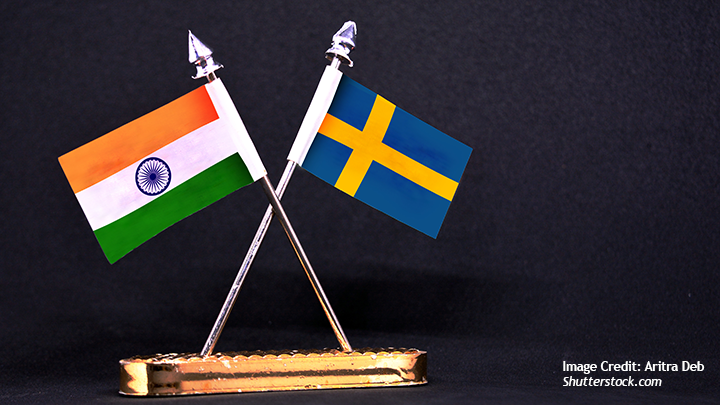
India-Sweden Strategic Compass: A Bi-Monthly Newsletter; November-December 2025
India-Sweden ties are progressing and strengthening from time to time. The year 2026 promises to maintain such progress. Optimistically, beyond the bilateral, Sweden can serve as an “inside-the-EU” accelerator for India on green industrial transition and technology standards. With India–EU trade negotiations facing friction, particularly over climate-linked instruments such as the Carbon Border Adjustment Mechanism, India–Sweden cooperation on industrial decarbonization, green steel and cement, and clean-tech commercialization offers practical templates that could ease broader engagement. Read the latest India-Sweden Strategic Compass, a bi-monthly newsletter, here. If 2025 proved the partnership through projects, 2026 must be about scale—deeper talent mobility, stronger R&D-to-market pathways, and a strategic conversation that finally matches the ambition of the economic and technology agenda already underway.
-
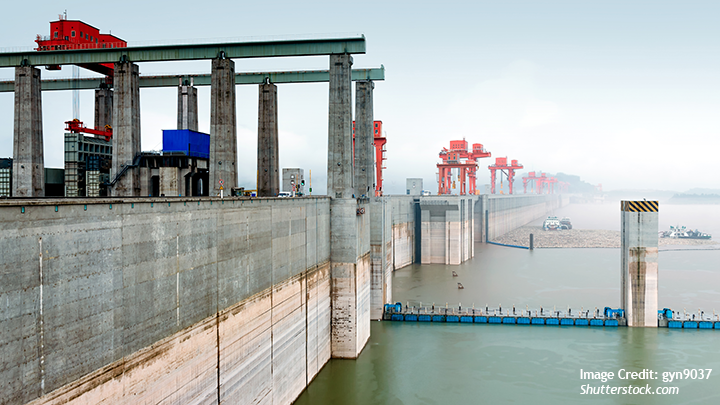
The Medog Imperative: Why China’s Megadam Must Be on the UNFCCC’s Agenda
This piece by Jagannath Panda analyses the significance of China’s Medog hydropower megaproject on the Yarlung Tsangpo and its catastrophic effect on the climate conditions in Tibet. The dam, which Beijing promotes as a flagship contribution to its 2060 carbon-neutrality target, is expected to surpass even the Three Gorges Dam in power generation and strategic symbolism. Yet behind the carefully curated discourse about China’s climate leadership lies a multidimensional crisis in the making. Panda argues that the Medog dam is not merely a Chinese domestic project but a bellwether for the integrity of the global climate system. Read this piece here.
-
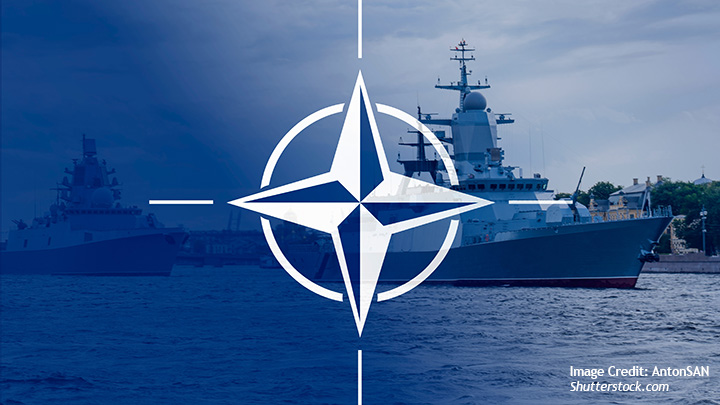
Trump’s quest for Greenland could be NATO’s darkest hour
This piece by Anna Wieslander examines the trans-Atlantic tensions over Greenland. The piece argues that the possibility that the United States, the leading member of the Alliance, would use its might to annex part of another ally’s territory is almost beyond imagination and a nightmare for NATO Secretary General Mark Rutte. As expressed in the first paragraph of the North Atlantic Treaty, the Alliance rests on the principles of the United Nations Charter that international disputes are settled by peaceful means, and that the parties refrain in their international relations from the threat or use of force inconsistent with the Charter, writes Anna Wieslander. Read the piece here.
-
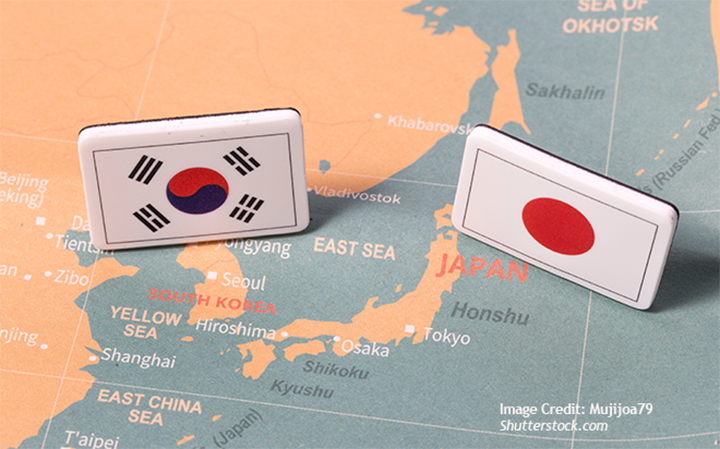
Japan-Korea: Too Close To Be Close?
This issue brief discusses how Japan and Korea share a rich but complicated relationship. Lars Vargo writes that both Japan and South Korea have much in common, resembling the way Nordic nations have related to one another over the centuries; however, unlike in the Nordic case, history still weighs heavily on the present. With a Korean President known for his earlier anti-Japanese statements and a Japanese Prime Minister known for repeatedly challenging historic responsibility for Japan’s treatment of Korea, few would be surprised if bilateral relations were to take a downturn. Instead, both leaders have shown statesmanship and emphasized the necessity of “future-oriented” relations. Hopefully, the need to build a common defense of democratic values against the bullying tactics of great powers will bring the two countries closer together in a positive way. Read this issue brief here.
-
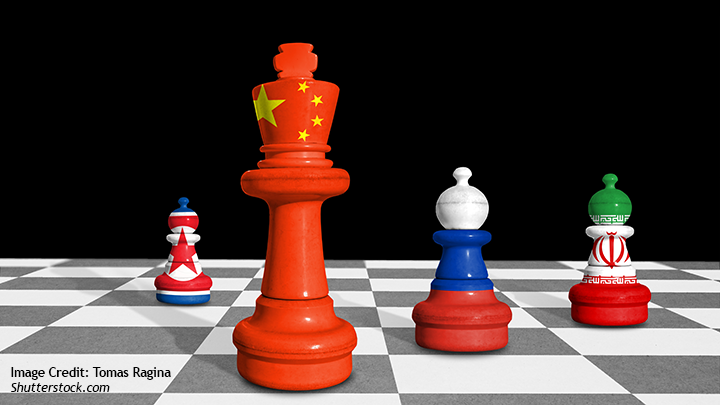
The US returns to region between Russia, China and Iran
This piece by Svante E. Cornell and Brenda Shaffer in Nikkei Asia analyzes the recent moves of President Donald Trump in Central Asia. They argue, more recently, President Trump hosted the presidents of the five Central Asian states at the White House and took the initiative to include Kazakhstan in the Abraham Accords. Put together, these moves represent an American return to greater Central Asia, write Cornell and Shaffer. This return has, in turn, been assisted by the recent rise of Turkish influence in the region, the most notable counterweight to Russian and Chinese domination in a long time. The weakening of Iran also creates an opportunity for Washington, argue Cornell and Shaffer. Read the piece here.
-
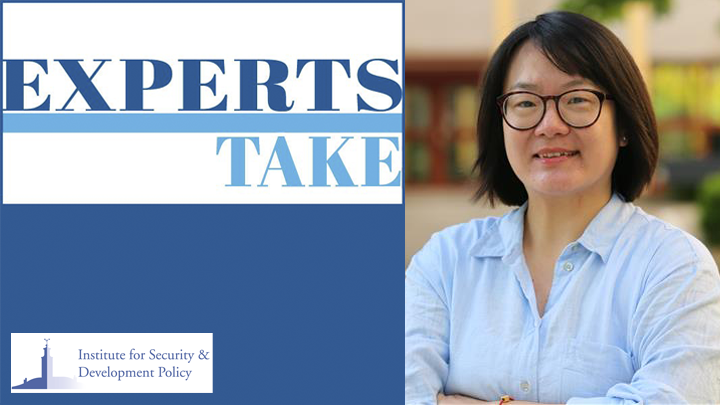
Who Controls Information Now? AI Search, Journalism, and Democratic Risk; An Interview with Dr Joanne Kuai
In this edition of Experts Take, Anahita Poursafir interviews Dr. Joanne Kuai, a former journalist and now a postdoctoral researcher at RMIT University, Australia, to explore the risks, responsibilities, and future directions of journalism and governance in the algorithmic age. Drawing on extensive empirical research, from audits of generative AI–powered search engines to interviews with journalists across continents, Dr. Kuai investigates how new technologies redistribute power, challenge longstanding journalistic norms, and create both opportunities and vulnerabilities in the information ecosystem. Her insights are especially relevant for policymakers, researchers, journalists, and industry stakeholders navigating the rapidly evolving landscape of AI-mediated communication. Read this Expert's Take here.
-
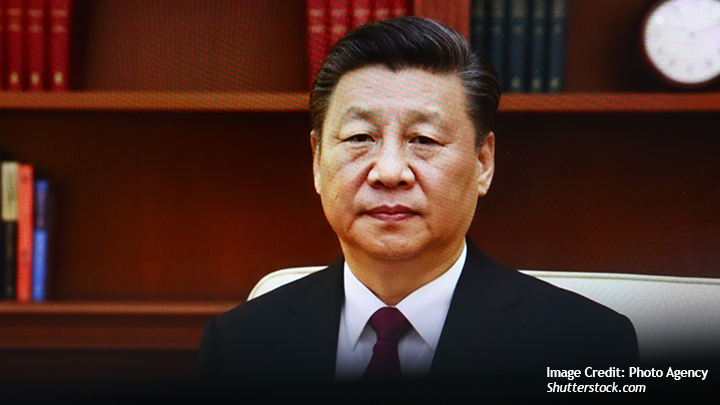
What Xi Jinping’s New Year Speech Signals to India
Jagannath Panda examines Xi Jinping's New Year speech in the Indian context. He raises a few questions: as China’s technological and military power continues to grow, the central issue is whether Beijing can accommodate a stable coexistence with India as an autonomous Asian power, or whether strategic asymmetry is becoming structurally entrenched? Can economic pragmatism still act as a stabilising force in China–India relations at a time when strategic distrust is deepening under the shadow of US–China rivalry? And, how should India position itself within an emerging China-India-United States triangle, in which Beijing has long viewed Washington as the principal disruptor, while increasingly treating New Delhi as the pivotal variable? The answers to these questions will shape the contours of the Asian order in 2026 and beyond, writes Jagannath Panda.
-

The Democratic People’s Republic of Korea & Renewable Energy: Potential as Trust Building Engagement?
In 2025, re-engaging the Democratic People’s Republic of Korea (DPRK) has returned to the political agendas in Seoul and Washington. Nevertheless, with the DPRK’s geopolitical position having improved tremendously since the Kim-Trump Summits in 2018, the playing field is very different. As Washington and Seoul continue to prioritize complete denuclearization, misalignment of interests between the ROK, U.S., and DPRK makes it difficult to actualize re-engagement, with a potential deadlock being the most likely outcome. As a result, options outside of the regional framework and disarmament negotiation approach must be considered if the status quo is to be disrupted. This issue brief by Josephine Ørgaard Rasmussen explores Nordic-DPRK renewable energy collaboration as a low-risk, confidence-building measure to stabilize engagement, in alignment with the policies in Washington and Seoul. It does not intend to promote itself as the exclusive solution, but rather as a means to broaden the discussion on how to approach the DPRK today. Download and read the issue brief here.

